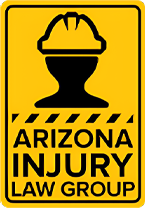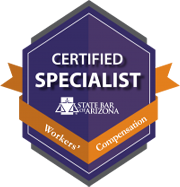Resolving Workers Compensation Disputes Through Mediation

Under Arizona’s workers compensation law, an injured employee generally foregoes the right to sue his or her employer for negligence in connection with a work-related injury. In exchange, the employee is entitled to benefits such as medical treatment or monetary payments while he or she remains unable to work. In a perfect world, claims would be processed and paid without objection or delay. In reality, however, an employee may be dissatisfied with the denial of his or her claim, or the employer may dispute its validity or terms. Either may request a formal administrative hearing before the state Industrial Commission. This is similar to a court trial, except that the presiding officer is a Commission Administrative Law Judge and there is no jury.
Unfortunately, getting to and through the hearing process takes time, and benefits are usually not paid while the appeal is pending. For this reason, some observers have asked whether it is possible to use a more informal process that would benefit both employees and employers by expediting the resolution of some disputes.
As we know from surviving historical records alternatives to litigation in business or personal disputes have been around for centuries. However, outside of some commercial settings, it is only in the last several decades that the use of so-called “alternative dispute resolution” (ADR) has become commonplace in the United States. ADR proponents cite its lower cost and speediness in comparison to litigation.
While ADR is a term that encompasses a number of procedures, mediation is among the most common. Depending upon the applicable rules, a mediator is appointed or is selected by the parties, who present formal or informal testimony or other proof. Rules of evidence and procedure are often more liberal than in court. At the end of the parties’ presentations, the mediator will make a recommendation.
Although the resolution is by its nature a compromise, the mediator is not necessarily expected to be entirely neutral. He or she will typically try to identify areas of agreement and may offer suggested solutions to disputed issues. A mediator’s proposal is usually not binding on either party, though it may serve as a basis for further negotiation.
WORKERS COMPENSATION MEDIATION IN ARIZONA
Many states have voluntary or mandatory mediation programs in areas such as domestic relations and small civil claims, but adoption in workers compensation cases is a more recent phenomenon. According to a survey by the National Association of Workers Compensation Judiciary, as of 2014 more than half of the fifty United States had incorporated into their workers compensation laws some type of mediation provision. In some, such as Pennsylvania, the process may be mandatory. Arizona has not as yet adopted any such requirement, although it may be used by agreement in cases heard by the Arizona Industrial Commission under the state’s Occupational Safety and Health Act of 1973.
Of course, an Arizona employee and employer may agree to use mediation by a neutral third party to help resolve any workers compensation dispute. Successful workers compensation mediations – that is, those which result in a compromise – tend to share the following characteristics:
- Both parties approached the mediation process in good faith and were prepared to invest time and effort in pursuit of a settlement. Each was also genuinely open to compromise.
- Each side was realistic regarding the strengths and weaknesses of its position and worked to keep emotions out of the process. While an employee or employer may represent him or itself in a mediation, consultation with an experienced workers compensation lawyer can help provide this sort of objective assessment.
- Each party had access to complete and accurate factual and medical information and documents.
- The parties chose a mediator who objectively considered and evaluated each side’s concerns and maintained an unbiased attitude. The choice in any given case may also be influenced by many factors, including the case’s medical complexity, the age or ethnicity of the claimant or the size of the employer’s business.
Copyscape Premium: No results found for this text (651 words) on 19 May 2018 at 6:51 GMT.
Get Help Today
Call Immediately For A Free, No Obligation Consultation And Let Us Help You Put Your Life Back On Track. Let Us Help You
Regain Normalcy And Stability Again. We Want To Help You Get The Benefits You Need And Deserve!


